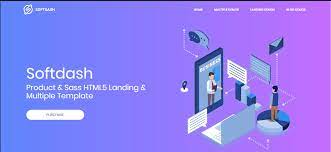The Power of CMS Web Design
CMS (Content Management System) web design has revolutionized the way websites are built and maintained. Gone are the days of static HTML websites that require coding knowledge to update content. With CMS web design, anyone can easily create, edit, and manage website content without any technical expertise.
One of the key advantages of CMS web design is its user-friendly interface. Most CMS platforms offer intuitive dashboards that allow users to add new pages, upload images, and update text with just a few clicks. This makes it easy for non-technical users to take control of their website and keep it fresh and up-to-date.
Another benefit of CMS web design is its flexibility. With a wide range of templates and plugins available, users can customize their website to suit their specific needs. Whether you’re running a blog, an e-commerce site, or a portfolio, there’s a CMS platform out there that can help you achieve your goals.
Additionally, CMS web design is SEO-friendly. Most CMS platforms come with built-in SEO tools that make it easy to optimize your website for search engines. From meta tags to sitemaps, these tools help improve your site’s visibility online and attract more organic traffic.
Furthermore, CMS web design is cost-effective. Building a website from scratch can be time-consuming and expensive. With a CMS platform, you can have a professional-looking website up and running in no time without breaking the bank.
In conclusion, CMS web design offers a powerful solution for building dynamic, user-friendly websites that are easy to manage and maintain. Whether you’re a small business owner or a seasoned developer, using a CMS platform can help you create a successful online presence with minimal effort.
Frequently Asked Questions about CMS Web Design for Designers
- What is CMS for designers?
- What is CMS website design layout?
- What does CMS mean in web design?
- Do web designers use CMS?
What is CMS for designers?
CMS for designers refers to Content Management Systems that are specifically tailored to meet the needs and preferences of web designers. These CMS platforms provide design-focused features and functionalities that allow designers to create visually appealing websites with ease. From customizable templates to drag-and-drop interfaces, CMS for designers streamline the design process and empower designers to bring their creative visions to life without getting bogged down by technical complexities. By leveraging CMS for designers, web designers can efficiently collaborate with clients, iterate on designs, and deliver stunning websites that not only look great but also function seamlessly.
What is CMS website design layout?
The CMS website design layout refers to the structure and arrangement of elements on a website that is created using a Content Management System (CMS). It includes the placement of headers, navigation menus, content sections, sidebars, footers, and other design components within the framework of the CMS platform. The layout of a CMS website design is crucial for creating a visually appealing and user-friendly experience for visitors. By organizing content in a logical and intuitive manner, the layout helps users navigate the site easily and find information quickly. Customizing the layout of a CMS website allows businesses to showcase their brand identity effectively and engage with their target audience in a meaningful way.
What does CMS mean in web design?
In the context of web design, CMS stands for Content Management System. A CMS is a software application that allows users to create, edit, and manage digital content on a website without the need for advanced technical skills. Essentially, a CMS simplifies the process of updating website content by providing an intuitive interface that enables users to add new pages, upload media, and make other changes easily. By utilizing a CMS in web design, individuals and businesses can maintain their websites efficiently and effectively, ensuring that their online presence remains dynamic and engaging for visitors.
Do web designers use CMS?
Yes, web designers often use CMS (Content Management System) platforms to build websites for their clients. CMS platforms provide web designers with a user-friendly interface that allows them to create and customize websites without the need for extensive coding knowledge. By utilizing CMS tools, web designers can efficiently manage website content, update designs, and add functionality to meet their clients’ specific needs. This approach not only streamlines the website development process but also empowers web designers to deliver high-quality websites that are easy for clients to maintain and update in the future.




